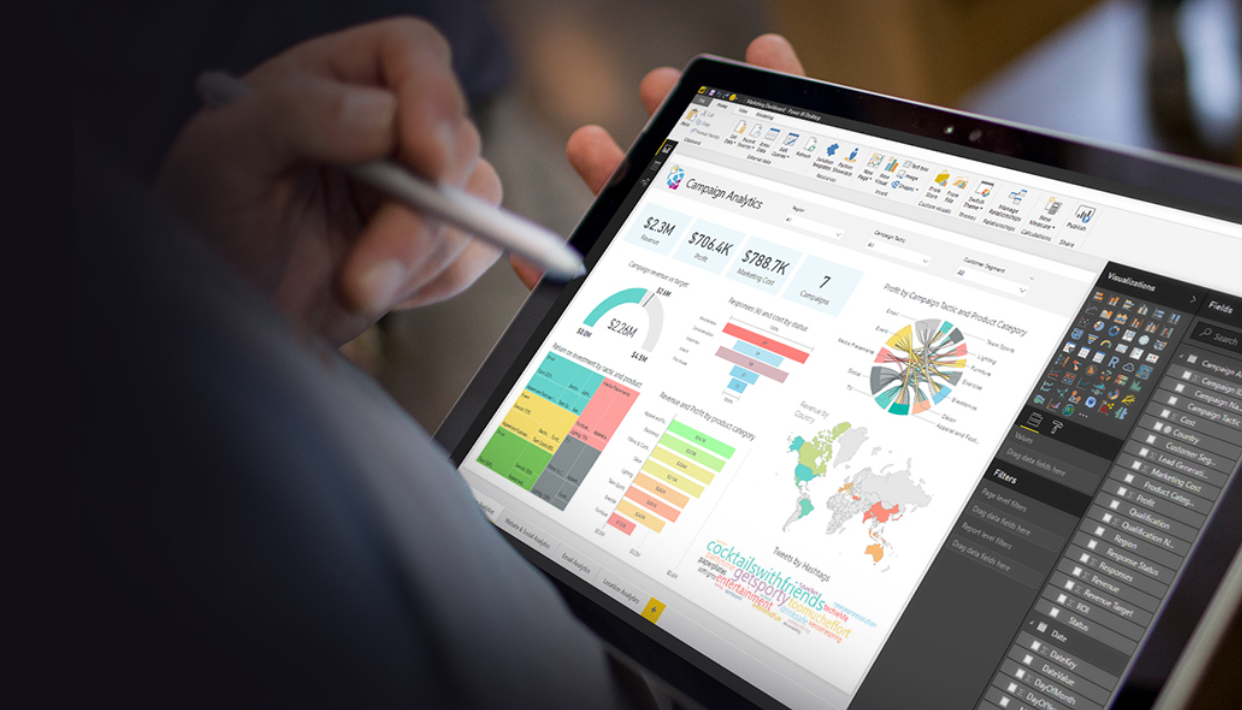In the era of data-driven decision-making, businesses across various industries are leveraging powerful tools to harness the insights buried within their data. One such tool that has gained immense popularity is the Power BI Service.
Designed by Microsoft, Power BI Service is a cloud-based business analytics service that enables organizations to visualize and share insights from their data in a seamless manner. In this comprehensive guide, we will delve into the various aspects of Power BI Service, exploring its features, functionalities, and how businesses can unlock its full potential.
Understanding Power BI Service
Power BI Service serves as a centralised platform for data visualisation, collaboration, and sharing within an organisation. It allows users to connect to a wide range of data sources, including Excel spreadsheets, databases, cloud services, and more.
With its intuitive interface and drag-and-drop functionality, users can easily create interactive reports, dashboards, and data visualisations without requiring extensive technical expertise.
Key Features and Functionalities
1. Data Connectivity: Power BI Service offers seamless connectivity to a plethora of data sources, enabling users to import, transform, and visualise data from various sources such as SQL databases, Azure, Salesforce, Google Analytics, and many others.
2. Interactive Visualizations: One of the standout features of Power BI Service is its ability to create highly interactive visualisations. Users can leverage a wide range of visualisation types, including bar charts, line graphs, pie charts, maps, and more, to gain deeper insights into their data.
3. Real-Time Dashboards: With Power BI Service, users can create real-time dashboards that provide up-to-date insights into key metrics and KPIs. These dashboards can be shared with stakeholders across the organization, enabling informed decision-making.
4. Collaboration and Sharing: Power BI Service facilitates collaboration among teams by allowing users to share reports and dashboards securely. Users can control access permissions, ensuring that sensitive data remains protected while still fostering collaboration.
5. Natural Language Querying: Another notable feature of Power BI Service is its support for natural language querying. Users can ask questions about their data using plain language, and Power BI will generate visualisations and insights accordingly, making data analysis more accessible to a broader audience.
Getting Started with Power BI Service
Getting started with Power BI Service is straightforward. Users can sign up for a Power BI account and access the service through a web browser or the Power BI desktop application. Once logged in, users can connect to their data sources, create visualisations, and share insights with colleagues.

Best Practices for Maximizing Value
To unlock the full potential of Power BI Service, organisations should consider implementing the following best practices:
1. Data Preparation: Invest time in cleaning and preparing your data before importing it into Power BI Service. Well-organized and structured data will lead to more accurate and insightful visualisations.
2. User Training: Provide training and resources to users to help them leverage the full capabilities of Power BI Service. This includes training on data visualisation best practices, dashboard creation, and report sharing.
3. Governance and Security: Establish governance policies and security measures to ensure that data remains secure and compliant with regulations. Define roles and permissions within Power BI Service to control access to sensitive information.
4. Regular Updates and Maintenance: Regularly update your reports and dashboards to reflect changes in data or business requirements. Perform routine maintenance tasks, such as refreshing data sources and optimising performance, to ensure the smooth functioning of the Power BI Service.
Conclusion
Power BI Service offers a comprehensive suite of features and functionalities that empower organisations to derive valuable insights from their data. By understanding its capabilities and implementing best practices, businesses can unlock the full potential of Power BI Service, driving informed decision-making and gaining a competitive edge in today’s data-driven landscape.
Whether you’re a small startup or a large enterprise, harnessing the power of Power BI Service can transform the way you analyze and visualise data, paving the way for greater success and growth.

